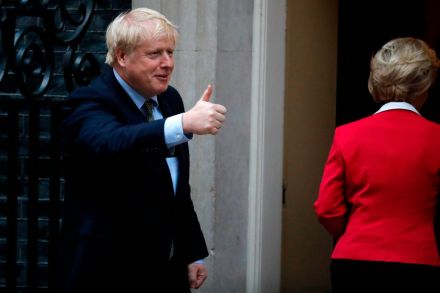Has Kay Burley just been cancelled?
It’s a big morning for news in the UK as the first patients receive the Pfizer coronavirus jabs and Brexit deadlines loom. So, one would have imagined Kay Burley would be front and centre of her self-titled morning breakfast show. Apparently not. Mr S was curious to note Burley’s absence on today’s show — with Sky News’s Sarah Hewson instead broadcasting from Coventry University Hospital, where the first vaccinations are taking the place. It appears Burley has been deemed a safety risk after Guido broke the news that the Sky News anchor had breached social distancing rules with her 60th birthday celebration. Her crime? Burley is alleged to have gone over the permitted rule of




















